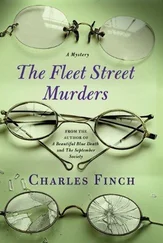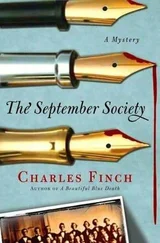Charles Finch - Beautiful blue death
Здесь есть возможность читать онлайн «Charles Finch - Beautiful blue death» весь текст электронной книги совершенно бесплатно (целиком полную версию без сокращений). В некоторых случаях можно слушать аудио, скачать через торрент в формате fb2 и присутствует краткое содержание. Жанр: Исторический детектив, на английском языке. Описание произведения, (предисловие) а так же отзывы посетителей доступны на портале библиотеки ЛибКат.
- Название:Beautiful blue death
- Автор:
- Жанр:
- Год:неизвестен
- ISBN:нет данных
- Рейтинг книги:5 / 5. Голосов: 1
-
Избранное:Добавить в избранное
- Отзывы:
-
Ваша оценка:
- 100
- 1
- 2
- 3
- 4
- 5
Beautiful blue death: краткое содержание, описание и аннотация
Предлагаем к чтению аннотацию, описание, краткое содержание или предисловие (зависит от того, что написал сам автор книги «Beautiful blue death»). Если вы не нашли необходимую информацию о книге — напишите в комментариях, мы постараемся отыскать её.
Beautiful blue death — читать онлайн бесплатно полную книгу (весь текст) целиком
Ниже представлен текст книги, разбитый по страницам. Система сохранения места последней прочитанной страницы, позволяет с удобством читать онлайн бесплатно книгу «Beautiful blue death», без необходимости каждый раз заново искать на чём Вы остановились. Поставьте закладку, и сможете в любой момент перейти на страницу, на которой закончили чтение.
Интервал:
Закладка:
Lenox stepped forward. “Please, one more question. Here’s another pound.”
He handed Jones the money.
“One more.”
“Why do they make it? At Oxford or anywhere?”
“Why do they make any poison, sir?”
“No other reason?”
“Well,” Jones said, “it has one other use.”
“What’s that?”
“The chemistry dons sometimes mulch their flower beds with it,” he said. “It’s particularly good for roses and orchids.” And then he walked through the door again, without so much as looking back.
Lenox said thank you as quickly as he could and ran outside to catch the cab before it left. When he stepped onto the curb, though, he saw that it was several blocks away already and looked ready to turn. A shilling didn’t buy what it had when he was a boy.
“No!” he said, and waved his arm, and in his haste stepped into the road. But he was unaccustomed to the broken cobblestones of the neighborhood, and his foot plunged halfway up his calf into an icy pool of water beside the gutter.
Lenox swore only rarely, but he did so now. The chill ran through him, and as he began to walk the wind battered his leg. But he made haste, and soon he was out of the Dials; perhaps there would be a cab, and then, he thought hopefully, it would be no time until he was in his library, sitting by the fire and eating something good.
Chapter 11
T he man who walked up the stoop of 11 Hampden Lane that afternoon, just before four o’clock, was not, his friends would agree, Charles Lenox at his best. He had been forced to walk the better part of the way home, and a fringe of snow covered his coat, the brim of his hat, and his scarf. One of his feet, he was convinced, would fall off soon, and the other one, though near-perfect by comparison, felt as if it was stepping barefoot on the street as he walked.
Add to that his perplexity about Prudence Smith’s murder, his eagerness to solve the case for his dear friend, and the fact that he was worn out and hungry from his walk, and one might begin to understand his circumstances.
But when an upper maid opened the front door to him, he said hello as cheerfully as though he had been out for a lazy walk in late spring. She took his coat, his hat, and his scarf and asked if she ought to bring tea to the library, to which he assented. Only when he had walked through the hallway, turned right, and shut the doors of his sanctuary behind him did he sigh and wince and gingerly remove his mutinous boots.
Things soon began to improve. The fire was warm, and he had changed into a spare set of hunting clothes-a houndstooth suit-that he kept in a drawer in the back of the room. And when the tea came, he felt warm enough, and cozy in his high-backed chair, watching the snow fall outside, with a paper in his hand that he might choose to read or not, as the mood took him, and a happy heaviness in his eyes, as of contentment.
He asked the girl for his slippers, and she fetched them, and in the space of fifteen minutes, happiness had returned to his face, and before he had even had a chance to read the headlines the newspaper had fallen from his hands and he had dozed off pleasantly into sleep.
He awoke thirty minutes later, first half-sleeping and then gently opening his eyes. As he gazed into the whitened street, he thought drowsily that it had been a perfect nap-the sort a man runs into now and again by chance, when he has had a difficult day but comes back to his hearth to find a brief moment of peace and rest, the sort that leaves him renewed, still sleepy, and at ease with the world.
There was a knock on the door, and he heard the maid walking briskly across the hallway to answer it. It occurred to him then that Graham must not have returned yet from the two tasks he had set out to do.
The maid tapped on the door to the library, and Lenox said, “Come in.” She swung the double doors open, and Lady Jane, who was on the threshold, said to her, “Bring the tea now if you would, my dear.”
Lenox stood up and smiled.
“I’ve only just woken up,” he said, “from the loveliest nap.”
“What a lucky thing!” Lady Jane said, pulling off her gloves and leaning back, with an exhale, into the red sofa. She was wearing a pale blue dress that brought out the flush in her cheeks.
“Oh, it was very nice.”
“Such a horrid day, too. I saw you coming back home from my window, Charles, and I saw your poor leg was drenched, and I thought I would give you an hour to rest, but it’s only been forty-five minutes and here I am already. I hope you don’t mind.”
“Never,” he said. “Or, if ever, I would have minded forty-five minutes ago, when I first came in. But at the moment nothing could bring me more pleasure. Now, have you had your tea?”
“I haven’t.”
“Neither have I.”
“I know,” she said. She smiled. “Your maid told me that she brought it in, but you were asleep. She’s bringing a fresh pot now.”
“I thought I heard you say something to her.”
“It will only be a moment, I think.”
“It seems ages since lunch. Though the company was good; I was with my brother.”
“Edmund!”
“I enjoyed seeing him, of course, but it was hours and hours ago. You’re lucky you didn’t find me fainted dead away on the sidewalk.”
“Did you have a trying day, otherwise?”
He smiled. “Of course not,” he said.
“Oh, I know you did, you fibber. Was it too terrible?”
“I’ll only admit I was cross with the city when I came home, but it passed within a moment and I no longer have any idea of moving to the American prairie.”
“Thank goodness. We should have seen much less of each other.”
“Not a fashionable enough neighborhood, my lady?”
“Not by half,” she said, and they both laughed.
The tea came a moment later, and Jane, as she always did, served it.
“Two pieces of toast?” she asked.
“How about four?”
“Four!”
“Yes.”
“A bear couldn’t eat four pieces of toast!”
“A bear who had walked through London all day, and stepped in a puddle, and been betrayed by a cabdriver, very well might eat four pieces of toast.”
She laughed and handed him his tea and his toast and began to talk about a ball that her friend the Duchess Marchmain was giving next month. They fell into a conversation about old friends, and soon he realized, with a pang of gratitude, and love, that though she had rushed here to speak about the murder, she had seen his weariness and sacrificed her own anxiety to put his mind at rest.
He let her talk a little while longer about the Duchess and her sons-who were known to be as vain as women-and whom they might marry. But when the conversation turned, he told her that he had spent all day on the case.
He recounted what he had done: about bella indigo, about his breakfast with Barnard, and about Graham, who was out working on a few basic leads Lenox hoped would reveal something he suspected. And last he told her that he had discovered something else, something potentially important, but had been sworn to secrecy over it at lunch.
It wasn’t much of a bounty to give her, but she seemed comforted, by the time he stopped talking, and said only that she hoped she would be able to do something herself.
“I’ll get to the bottom of it,” Lenox said.
“I know you will.” Her face betrayed a moment of worry, but then she took a last sip of tea and began to put on her gloves again. She stood up to leave and they said goodbye, agreeing that they would have tea again the next day, just to check in.
After she left, Lenox thought about what he knew so far. It had been slightly less than a day, and he had learned a great deal: that Prue Smith had definitely been murdered; by what instrument; the clues at the scene of the murder; the probable origins of the poison; the definite motive of the mint’s gold; the restricted group among whom the murderer might reside.
Читать дальшеИнтервал:
Закладка:
Похожие книги на «Beautiful blue death»
Представляем Вашему вниманию похожие книги на «Beautiful blue death» списком для выбора. Мы отобрали схожую по названию и смыслу литературу в надежде предоставить читателям больше вариантов отыскать новые, интересные, ещё непрочитанные произведения.
Обсуждение, отзывы о книге «Beautiful blue death» и просто собственные мнения читателей. Оставьте ваши комментарии, напишите, что Вы думаете о произведении, его смысле или главных героях. Укажите что конкретно понравилось, а что нет, и почему Вы так считаете.












